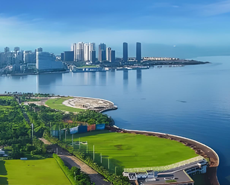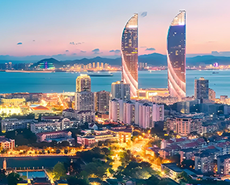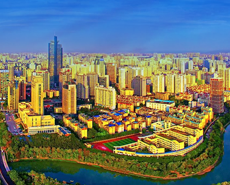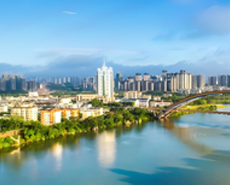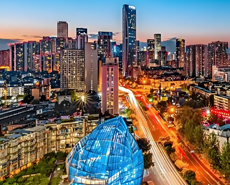
Standardized traceability management needed in individual recycling of lead-acid battery
----Interview with Xing Shen
Vice General Manager
Guizhou Jinlong Metal Alloy Co., Ltd.
Vice General Manager
Guizhou Jinlong Metal Alloy Co., Ltd.
Founded on February 13, 2015 with a registration capital of RMB60 million (USD9.27 million), the company is located in the Geyi Economic Development Zone in Taijiang county, home for the Miao minority group in China. The company was set up as an investment project into Taijing county. It mainly focuses upon recycling and utilization of used lead-acid storage batteries, and its main products include secondary lead, National Standards lead ingot 99.994%min produced via pyrometallurgical process, lead alloy, and auxiliary ABS plastics. It has an annual production capacity of 60,000t of secondary lead and lead alloy.
Asian Meal: Hello, Mr. Shen. Thanks for taking our interview. Would you please give a brief introduction on your company at first?
Ms. Shen: Our company mainly focuses upon recycling and utilization of used lead-acid storage batteries, and our main products include secondary lead 98%min, refined lead, lead alloy and related auxiliary products such as ABS plastics. Our company originated from Guizhou Changlong Metal Processing Co., Ltd. which, granted with hazardous waste permit in 2010, was the first local enterprise obtaining such permits in Guizhou. For reasons including environmental protection policies, Guizhou Changlong moved to the Geyi Economic Development Zone in 2015 and was formally renamed Guizhou Jinlong Metal Alloy Co., Ltd. Our company has raw material warehouses, production workplaces and storage warehouses.


Asian Meal: Would you please share with us your current production and operation status?
Ms. Shen: Our company was founded in 2015, went into trial production in 2016 and commenced commercial production in 2017. We mainly produced secondary lead 98%min at that time and extended production chain to refining in 2018 by commencing production of new products such as refined lead and lead alloy. We have two production lines at present with an annual treatment capacity of 108,000t of used lead-acid storage batteries and an annual production capacity of 60,000t of secondary lead. Our plant design is composed of designs on pretreatment workplaces for used lead-acid storage battery, production workplace for secondary lead, green production workplace for refined lead and lead alloy. In 2020, affected by the COVID-19 pandemic, our production was around 40,000t. We have formed strategic cooperation with a number of storage battery manufacturers and long-term orders account for around 80% of our total sales.
Asian Meal: The new Law of China on the Prevention and Control of Environmental Pollution by Solid Waste (hereafter referred to as New Solid Waste Law) went into force on September 1, 2020. Meanwhile, many local governments across China strengthened administration on recycling of used storage batteries. Would you please share with us your opinions on how these policies have affected the secondary lead industry?
Ms. Shen: Though our company does not have a long history, we have actually been dedicated to this industry for many years. In the old days, the battery recycling industry did not feel optimistic about treatment of used lead-acid storage battery and the public did not have enough awareness of environmental protection. So it was commonly seen that acid solutions resulting from battery dismantling process were poured everywhere. Thanks to insistent awareness-enhancing activities carried out by governments and enterprises and also thanks to progress made in relevant laws, the public gradually realized risks and harms hidden in improper disposal, and this issue has been greatly solved so far. Another issue in relation to improper exposure of acid solutions was that some enterprises which had no capacities of properly treating battery acid solutions discharged them directly after batteries were dismantled, leading to lead and acid pollution. In recent years relevant institutes paid attention to and also gave guidance to such enterprises, helping them carry out technical upgrading, and unqualified enterprises exited the market. Now, recycling enterprises are not allowed to operate unless they are granted with hazardous waste permits, and when they apply for such permits, they have to equip themselves with required processing abilities. This is a compulsory index which can effectively prevent recycling enterprise from causing pollution. In fact, when you look at the existing secondary lead production techniques, you can find that some acid solutions can bring in economic values, so it’s of smaller possibilities for recycling companies to dispose solutions at random. Another issue is how to legalize the recycling process. This means that reproduced products can be traced back to their origins. This is a point also emphasized in the New Solid Waste Law, but it is described in the law as producer’s liability extension rule. At present, product origins of corporative enterprises can be traced via electronic bills or transport bills held or issued by such enterprises, but how can we do if recyclers are individuals? My opinion is that we need to pay more attention to the issue of individual origins and work together to find solutions for it.





